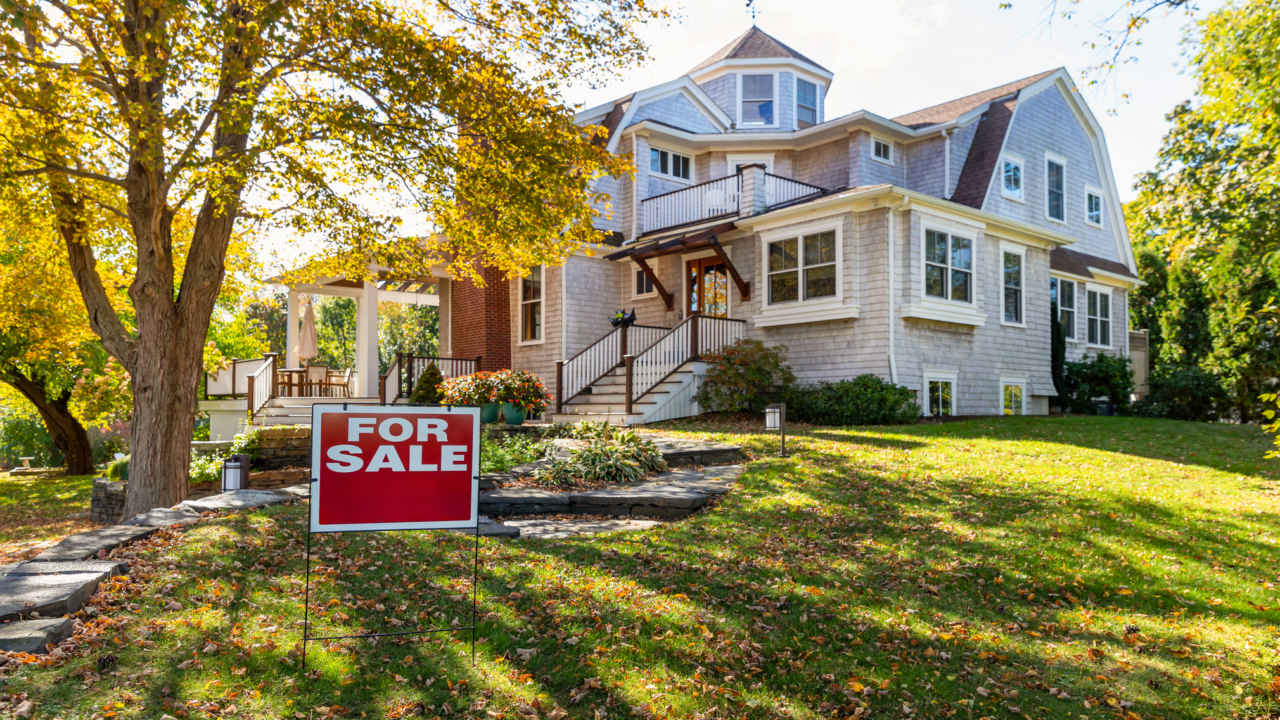What Makes a Good Real Estate Agent
A great real estate agent can make all the difference. Look for these skills and attributes when hiring yours.


Written by May Ortega on June 27, 2025
In this article:
- What services to expect from any real estate agent
- What to look for in a seller's agent
- What to look for in a buyer's agent
- What skills to look for in a good real estate agent
- What character traits make a great real estate agent?
- What makes the best real estate agent for you?
Every real estate agent has a similar goal: get their client to sell or buy a house successfully. But there's much more to it than that, and many things set a great agent apart from an average one. Clients evaluate real estate agents based on the services they offer, their skill level, their expertise, and their character. Ultimately, the right real estate agent for you is the one who best understands your goals and expectations.
What services to expect from any agent
All agents should provide the following basic services. If you're considering working with an agent who doesn't cover the following items, consider trying to negotiate a lower commission, or browse for a new agent in our database. Here's what to expect from your real estate agent if you're selling your home:
Provides a comparative market analysis
Your agent should come prepared with a comparative market analysis (also called a CMA). It's a report that outlines recently sold homes that are similar to yours or what you want, in the same area. Real estate agents use this info to help you determine an appropriate price range for your deal based on your local market conditions. Your agent should talk you through factors that can increase or decrease the price you're able to get, like the home's condition, location, and features.
Attracts and screens qualified buyers and sellers
Connecting you with qualified buyers or sellers is one of the most important tasks any agent has.
According to the 2024 Zillow Group Consumer Housing Trends Report, 98 percent of sellers reported using an agent. Half of buyers said their agent was their most valuable resource in their home buying journey, according to Zillow buyer data.
Your agent should talk to every other agent who may be able to help you close the deal; maybe those other agents have a client who fits the bill that you're looking for, be it the type of home they want to buy, or the home they're selling.
Facilitates showings
Your agent should coordinate showings. If you're selling, they should always give you an agreed-upon amount of notice of when people are coming over for tours. If you're buying, it's your agent's duty to make sure you'll have access to the home for your tour. If you've agreed to it, your agent may also set up lockbox showings, where the buyer's agent lets themselves in using a private code.
Manages offers, handles paperwork, and facilitates negotiations
No matter if you're selling or buying, it's also your agent's job to handle all negotiations between you and the other party, and to guide you through actions that need to be taken to close the deal, like signing paperwork and arranging inspections and appraisals.
Completes the process within a reasonable time frame
The ideal closing time frame for selling and buying depends on your real estate market. In hot markets, deals can close in as little as 30 days. But in cooler markets or rural areas — or if you're dealing with a luxury home with a more limited buyer pool — it can take longer. Your real estate agent should give you an estimate of how long homes stay on the market in your area, so you'll know what to expect. Then they should do their best to deliver on that estimate.
What to look for in a seller's agent
Encourages you to list on public sites
When you list your home up for sale, you may have the option to list publicly or privately. Usually, when a home is for sale, the seller works with an agent who will list the home on a local database called the Multiple Listings Service (MLS). The MLS then shares the listing with public sites like Zillow or Redfin, making it accessible to all potential buyers. This will make your home sale more competitive and could help it sell for more.
With a private listing, your home will only be shared through your agent’s personal network, direct contacts, or exclusive platforms. In this case, the home isn’t listed on an MLS at all, so far fewer buyers will know your home is on the market. The fewer people who see your listing, the fewer (and lower) offers you could get, and thus your home may sell for less.
And remember, selling agents are legally required to tell a seller about all the offers they've received.
Strong marketing strategy
Professional photography: Good agents include the services of a professional photographer in their commission fee, and sellers recognize the value in this offering. Seventy-eight percent of sellers surveyed by Zillow said an agent including high-quality photos would make that seller more likely to hire them.
Social media marketing: Today's top agents have a strong social media presence and are eager to post your listing on sites like Facebook and Instagram.
Willing to host open houses: 80 percent of sellers In 2024, 77 percent of sellers hosted at least one open house. A good agent should offer to host an open house (or several) soon after your home is listed.
While the services discussed above should be standard in all listing agent-seller relationships, the best agents go above and beyond to provide additional benefits.
Understands new technology
Leading agents incorporate new technology into the selling process. Not only do technology tools help agents find more clients, but they also help sellers find buyers quickly, which is a benefit for you.
Use Showcase for listings
Most buyers search for homes online (94%), according to Zillow research, and your listing's photos are the first thing buyers will see. By using our Showcase listing experience, your home will stand out immediately. Showcase gives home listings a media-forward design that includes an immersive 3D tour. Showcase listings are also prioritized on Zillow, so when people are looking for homes in your area, yours will come up first. Showcase listings tend to perform better than similar non-Showcase homes, bringing in over 75% more page views.
Virtual tours
Beyond providing real estate photography (which is standard in today's online-focused marketplace), great agents also understand how multimedia entices buyers. They will offer videography or 3D tours for their listings, which pique buyers' interest and minimize showings from buyers who end up not being interested. They can also help you attract out-of-town or international buyers who can’t tour in person.
What to look for in a buyer's agent
Uses their broad network to find homes
Your agent should search for homes across all their resources; that means looking at the MLS, asking their networks, and encouraging you to look for homes too. The more homes you see, the better odds you'll find that perfect fit. You don't want an agent who will only show you a few homes that are listed privately, or even discourage you from searching on your own.
Connects you with other services you'll need
A buyer's agent can suggest trusted lenders, real estate attorneys, escrow officers, and home inspectors. When your agent has solid connections with these professionals, they can collaborate to simplify your whole buying and closing journey, and ensure the transaction goes smoothly.
Helps you get approved for the right mortgage
You can use resources like Zillow's BuyAbility tool to figure out your approximate budget for a home, and you can get pre-qualified for a home loan through Zillow in as little as five minutes. Then you can pass that information on to your agent. A good buying agent will build upon that info and ask you questions about what kind of features you want in a home, possible changes to your income or lifestyle, and other factors that can impact what kind of home you can afford. All of this will give them the best idea of how much money you'll need to borrow to buy your home.
Once you choose a lender, find the right home for you, make an offer, and get that offer accepted, your agent should work with your lender and with you to apply for a mortgage that makes sense for you.
What skills to look for in a good real estate agent
In addition to the baseline services they provide, a great real estate agent has skills that set them apart from an average one. Agents with these skills are diamonds in the rough, and they use their expertise to ensure that every client has the best financial and emotional outcome from their home sale.
Open communication
A great agent knows the importance of good communication with their clients. That means they clearly set expectations, field questions whenever you have them, take calls when you need their help and provide feedback on everything from pricing to home inspection results, to name a few things.
In addition to their communication with you, a listing agent also needs to be skilled at communicating with the buyer and the buyer's agent. They should speak clearly during negotiations, communicate your wants and needs, and avoid making false promises to move the deal forward. They should be as responsive to the buyer's agent as they are to you, promptly answering calls and quickly responding to showing requests.
Professional reputation
The best real estate agents operate a retention- and referral-based business, which means that most of their clients are repeat buyers and sellers, or people referred by friends and family. These agents are likely to have outstanding online reviews on sites like Zillow, Yelp, and Facebook. When you browse local agents on Zillow, you can filter by specialty, too, so you can look specifically for a seller's or buyer's agent.
Local market knowledge
A good agent will know what's popular in your area and will know what's a good deal, or when to move on. They'll also be aware of seasonal trends in your market and can help you determine the best time of year to sell or to buy.
What character traits make a great real estate agent?
In addition to their service offerings and real estate industry-specific skills, the best real estate agents are dedicated, determined and eager to help. Consider these top character traits:
Trustworthiness
Trustworthiness is an important characteristic in an agent, since they're helping you make a six-figure deal, or more. A trustworthy agent won't try to persuade you to work with them by giving you unrealistic prices for how much you might sell or buy for. They always set reasonable expectations, outline their responsibilities and give you time to review the listing agreement (if selling) or buyer agreement before deciding to work with them.
Sincerity
Great agents are always honest, even if it means saying things you don't want to hear — like your home isn't worth what you think it is, or that your budget won't be competitive enough for a home you love. They build a relationship with you based on honesty and keeping your best interests at heart.
Integrity
Top agents put their client's needs above their commission. That means they will go above and beyond to move a deal forward.
Work ethic
Real estate is not a nine-to-five job, and a great agent understands and embraces this. They won't resent clients for reaching out to them outside of traditional working hours, and they won't take off for a vacation without telling you.
Empathy
Good agents know that sometimes plans change and not every deal works out. They'll understand if you decide to take your home off the market, and they won't it against you if you completely change up what you're looking for in a home.
What makes the best real estate agent for you?
Services, skills and traits aside, the best real estate agent for you depends on your goals, your communication style, the level of support you need and your personal values. And the right agent for you isn't always the right agent for someone else. Consider these additional attributes that can help you decide if you've found the right agent.
Personality match: You want an agent that 'gets' you. You communicate easily with each other, they can adapt to suit your needs and you generally have a friendly, comfortable rapport.
Attentiveness: The right agent for you understands how much support you need and is honest about what they can and cannot offer.
Financial flexibility: It's important to have an agent who is willing to negotiate their commission rate or create a custom agreement that will help them help you in a way that meets their financial needs.
How much home can you afford?
At Zillow Home Loans, we can pre-qualify you in as little as 5 minutes, with no impact to your credit score.
Zillow Home Loans, NMLS # 10287. Equal Housing Lender
Get pre-qualifiedA great agent makes all the difference
A local agent has the inside scoop on your market and can guide you through the buying process from start to finish.
Learn more


